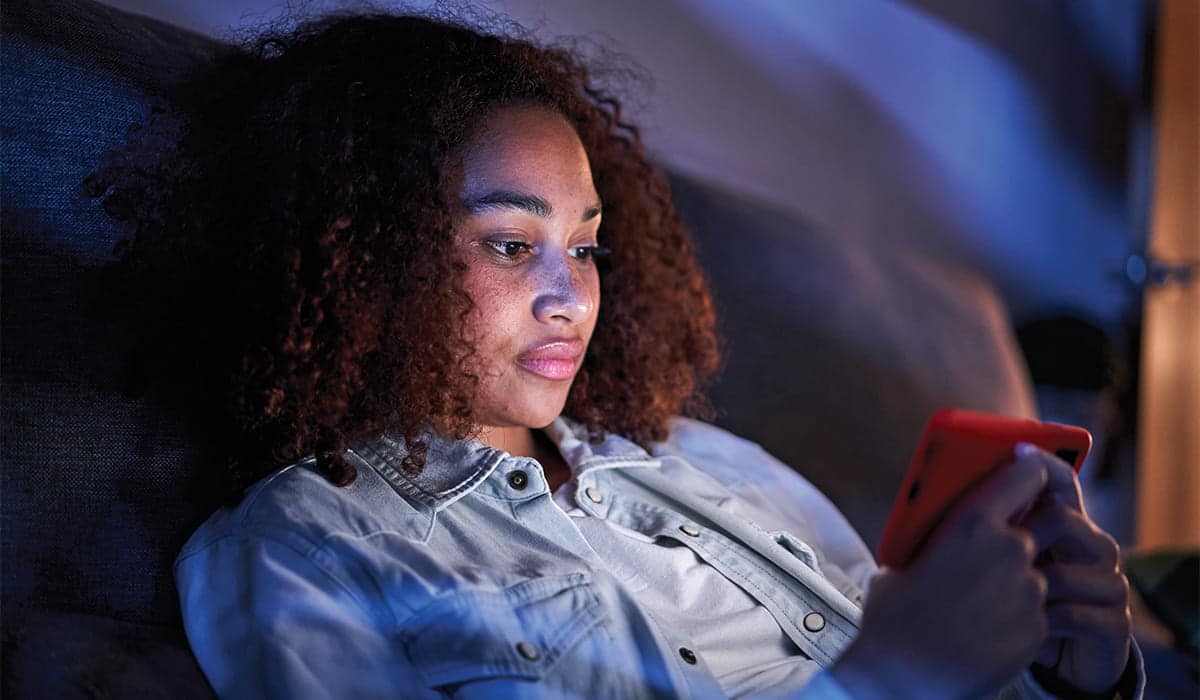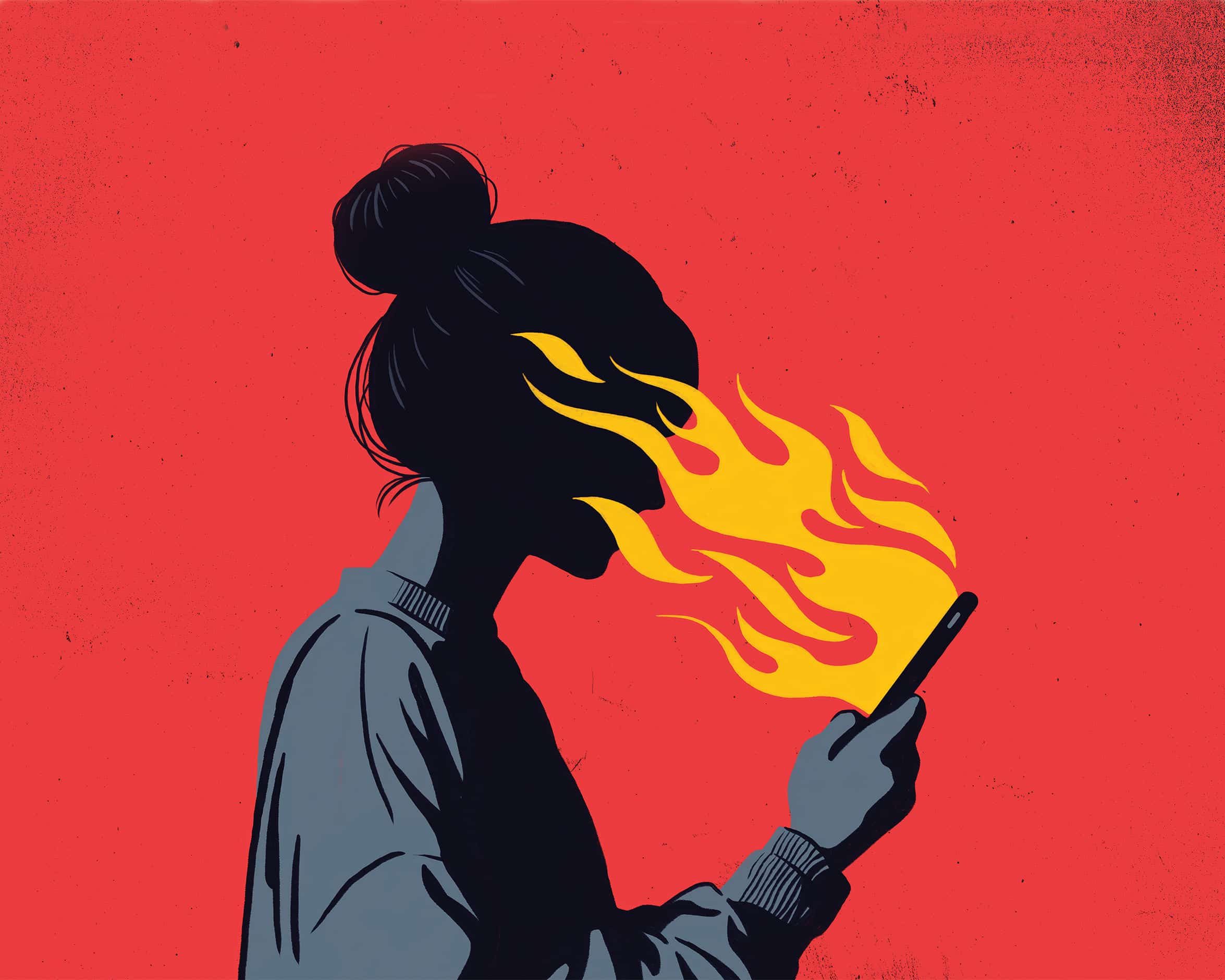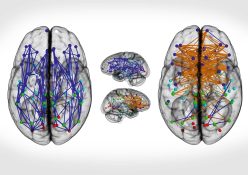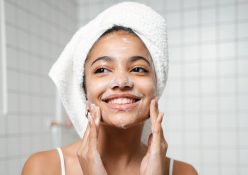But are we really ‘all good’ when we ditch our socials?
Let’s be real: we’ve all scrolled mindlessly through apps like TikTok and Instagram, even good old Facebook. We consume hours of reels, POVs and memes, convincing ourselves that it’s “just for five more minutes”. We tell ourselves that in the modern world, social media is a necessity to stay connected, informed, inspired — boosting our ‘social capital. But somewhere between the perfectly curated feeds, day-in-my-life vlogs and viral challenges, I started to feel… Drained. Anxious. Out of touch with myself. So, I left.
I just stopped. First Instagram, then Facebook. I had different reasons for each, of course. I gave myself a full year off the apps that once consumed hours of my day. Then, at intervals, I started giving TikTok the boot too. But having instant access to, and being present on, social media kind of comes with the territory when you’re pursuing a career in the media space, which I have been for nearly 10 years. Social media platforms and apps have become essential tools — basically a hack for everyday work tasks like quickly DMing an influencer to connect for an interview, researching the latest trends and hot topics, and updating an online portfolio to promote your work.
So, by deactivating my accounts, diminishing my online presence, one would say I was ‘shooting myself in the foot; right? Well, here’s how it went…
@tiinaiyaFeels like peace
The breaking point
My tipping point was the rising anxiety every time I opened my phone, being afraid of what I’d come across next (I’d been trolled and cyberbullied in the past, plus I was going through relationship issues). It was comparing my behind-the-scenes to everyone’s highlight reels. It was feeling like I had to keep up, achieve more milestones in life, look good, be relevant. But what’s the point in posting idealised snippets when in real life you’re not doing okay? It’s a facade. And it was that very facade and self-imposed pressure that made me take a step back.
I was burnt out, not just as an editor constantly online, but as a person who couldn’t remember the last time she existed without a screen. So, for my own peace of mind, I deactivated my Facebook and Instagram. TikTok took longer — I kept the app but deactivated my personal account and eventually deleted it entirely for weeks at a time.
Quick pep talk
Here’s how to make social media work for you:
- Audit your feeds: Unfollow or mute accounts that make you feel inferior or anxious.
- Set boundaries: Use app timers or schedule screen-free hours in your day.
- Be intentional: Ask yourself why you’re opening the app. is it FOMO? boredom? loneliness?
- Talk about it: If social media is affecting your mental health, speak to someone. A therapist can help unpack the deeper issues.
Week one: Digital silence
You know that ‘phantom buzz’? Where you think your phone vibrated, but it didn’t? That was me, for days! I’d reach for my phone out of pure habit, thumb hovering over where the Insta and Facebook icons used to be. Did I think of re-installing? Yes. But I didn’t. I was committed to letting go.
I had to rewire my brain. No more scrolling before bed. No more checking likes during lunch hour. No more doom-scrolling through comment sections. And it was hard. Not because I missed people (I didn’t, really), but because I was so used to being stimulated 24/7.
Month one: Reconnecting with the real world
After the initial withdrawal symptoms, something shifted… I started reading books again – like, actual poetry books, with pages! I journalled and doodled. I wrote poetry for the first time in months. I took my camera out and started nurturing my interest in photography again. I paid more attention during conversations.
I didn’t have to document every make-up look, pink sunset or event I attended. Life was just happening, and I was in it. Mentally, I felt lighter. My self-esteem wasn’t being sucker-punched every time I saw someone’s ‘perfect beach body’ or awesome holiday with friends. My anxiety dipped. I felt like I had more time, more energy, more me.
But let’s not romanticise it — there were intense moments of FOMO, and not-so-great life experiences to actually go through. Friends would talk about trending memes or viral videos, and I’d be completely out of the loop. There were job opportunities and events I only heard about later. I’d run into old school friends and not know they’re married and have babies. (Facebook was great for these status updates!) It wasn’t easy being offline in a world that runs on digital oxygen.

The traps I fell into
1. Substitution addiction
I swapped Instagram for Pinterest, TikTok for YouTube. I had to remind myself that escaping one app only to binge on another wasn’t healing – it was just ‘relocating’ the problem.
2. Isolation
Social media does help you stay connected. There were times I felt completely out of touch with friends who mostly communicated via DMs. Group chats helped, but some connections just faded.
3. Over-idealising ‘detox life’
I thought leaving social media would turn me into some serene, meditative forest fairy. Spoiler: it didn’t. Life was still stressful. I still had bad days. I just wasn’t posting about them anymore.
4. Sneaky relapses
Yes. Months into it, I ended up reactivating Facebook and TikTok a few times to basically take a quick peak (I mean stalk) and then deactivate it again. Why? Because I was feeling anxious about the great ‘unknown.
Tiny tip
Feeling overwhelmed, but not looking to let go forever? Try a 7-day social media reset. Log off, turn off notifications, and opt to physically write and journal how you feel each day. Get yourself a cute notebook and pen — it’ll make all the difference. You might be surprised by what shows up when the noise dies down…
Would I go back?
The short answer: maybe. But on my own terms.
If I go back, it won’t be to ‘keep up’ or please the algorithm. I want to follow people who inspire me — not trigger me. I want to post without worrying about engagement stats. I want to scroll mindfully, not endlessly.
The detox showed me that I can live without social media — and actually like myself without it. But I also don’t think social media is evil. It’s just a tool. Like any tool, it can either build you up or break you down, depending on how you use it.
@jayshetty Will you try this? Tag someone who should try it with you 🙏👇@On Purpose Podcast #socialmedia #tiktok #motivation #advice #jayshetty ♬ original sound – Jay Shetty
What the experts say
According to Dr Abongile Makuluma, a psychiatrist at Netcare Akeso Milnerton, we live in an information-driven society where we feel we need to constantly be available, and are unaware of the mental health risks of this type of pressure.
“This is especially true for those of us who not only use social media platforms for personal connections but are also connected 24/7 for work. What if there comes a time when that constant connection to everyone gets too much? What about those who simply cannot ignore their phones and screens to take a break?
“How do you disconnect when there’s that persistent fear that you’re missing out on the latest posts? In a work culture that normalises being connected for extended periods, how do we know when it’s time to disengage and put our devices down?”
If there’s a compulsion to escape to social media for a heightened sense of `belonging’ or to unnecessarily check in for work well past our working hours, she says, it may be time to pause and take a look at the damage excessive social media use may be causing.
Dr Makuluma also notes that frequent social media use can have negative effects on our relationships and well-being. “If you live in an `always-online’ environment, there could come a time when other social and emotional aspects of your life suffer. The downside of using social media for workplace communication is that there is often pressure to ‘be there. Rightly or wrongly, you may feel that if you’re not seen to be engaged all the time, you may be less valued by your managers.”
If you live in an always-online’ environment, there could come a time when other social and emotional aspects of your life suffer
This could cause real feelings of inadequacy. But if you’re always on call in the work group, where will you find your work-life balance? How can you detach from work stress if something work-related is always popping up on your phone? We have to find ways to opt out of being always available.
Dr Makuluma says that therapy is a good idea to help people cope and overcome distress, work on their sense of self-worth, and aid personal growth.
“Remember the adage, ‘everything in moderation. If this means limiting your social media time, this is an individual process, and you need to set boundaries to regulate use and be accountable for upholding them; she says. “Sometimes we just need help to recognise why we are so drawn to these apps for the sense of social validation and belonging they provide, whether in a personal or professional capacity. No one should feel uncomfortable about reaching out. It’s what mental health practitioners are here for.”
A social media detox allows one to take a step back from all the ‘noise’ and to have more time available to increase meaningful in-person social engagement. You can also use the time to develop new hobbies or take up old ones again, reflect on where you are and want to be in life, and see how your quality of life evolves without social media use, she adds.
So, was it worth it?
Yes. I feel like it was beneficial. Taking a break gave me clarity I didn’t know I needed. It made me realise how much noise I was absorbing, and how little of it actually mattered. It reminded me that I am enough, even when I’m not being seen, liked or shared.
I may return to the digital world, but I’m no longer living for it. Because for the first time in a long time, I’m doing fine without you.
By: Charndré Emma Kippie
Photography by: Gallo/Getty Images, Shutterstock







